Running for Seniors: 5 Benefits for Physical and Mental Health
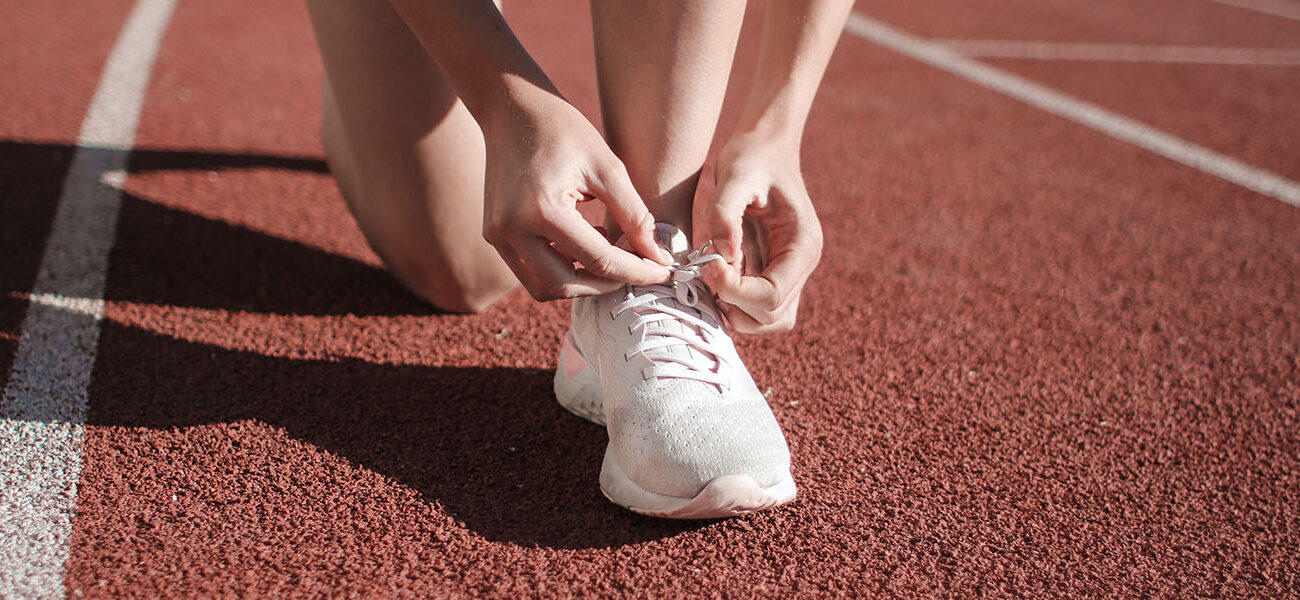
Running is one of the most popular ways for people of all ages to fit exercise into their routine. In 2017 alone, nearly 60 million Americans participated in some form of running.1
While the most popular reason for running is pretty broad – improving general fitness, running carries a variety of long and short-term, mental and physical benefits. Some of these are intuitive and well-known, while others might be new to you!
As people grow older, running continues to carry a variety of benefits to a variety of bodily systems and keeps them running smoothly while helping ward off disease and slow aging processes.
It’s safe to say – running is good for you, even as you age.
Now let’s examine the major ways picking up the pace improves your health and well-being.
Starting a Running Routine
#1 Running improves cardiovascular health
Running is useful for your heart health.
High blood pressure is a common issue, which, if untreated, can lead to more serious problems, such as heart disease, heart attack, and stroke.2
If you’re looking to decrease your blood pressure as a preventative measure, you’ll benefit from regular running. However, if you’re already suffering from hypertension, you should run at a moderate effort and a restrained volume.3
Actually, while regular exercise – including running – has benefits for all age groups, completing at least 20 minutes of exercise a day has the greatest impact on reducing heart disease risk for people over 70.4
Another good metric of your heart and overall health is your resting heart rate.5
A 2015 overview of studies has concluded that running is effective in lowering resting heart rate.6 A lower resting heart rate is associated with a lower cardiac risk, longer lifespan, and better physical fitness.
Also, since your heart rate decreases as you age, including regular exercise into your routine increases the amount of oxygen flowing through your body, helping your body work more efficiently and recover quicker.7
Essentially, if you run regularly, you’re a lot less likely to suffer from heart issues than anyone who doesn’t – especially at an older age.
#2 Running improves mental health, cognitive ability, and sleep
Running has many benefits for your brain and your day-to-day cognitive functioning.
While anecdotally, many runners participate in the exercise to reach the so-called “runner’s high,” which is an elevated mental state some people experience after vigorous exercise, running actually has many benefits beyond the short-term explosion of dopamine.
Runners report mental and emotional benefits from running – relief of tension, improved self-image, better mood, and improved self-confidence. A 2020 study concluded that running is a highly efficient tool in preventing and treating different psychological conditions.8
To be more specific, running has been found to help maintain emotional stability and reduce symptoms of depression, including mental dullness.9 Essentially, running makes your life more interesting!
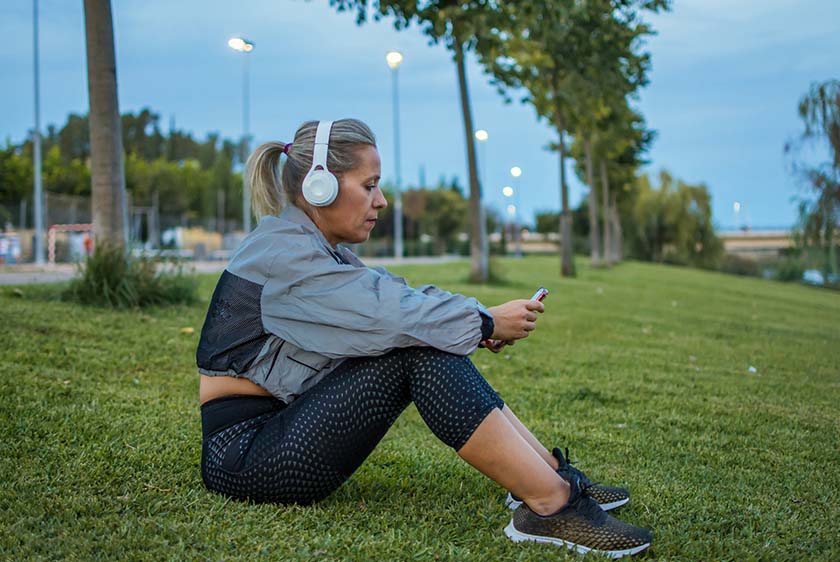
Advertisement
For seniors specifically, regular exercise – including running – can help ward off dementia and reduce the decline of cognitive ability.10
Running is not only a preventative measure for mental conditions – it helps you think more clearly and faster too. Running, especially at high intensity, helps you create more connections between the nerves in your brain, helping you learn new things more easily.11 And it helps your mind stay sharp for longer – so get really comfortable with the idea of running into old age to help you stay mentally sharp for as long as you possibly can!
#3 Running with an app helps create a habit of running
Running apps are more than just a fancy diary!
Running apps are an excellent way to build a habit of running. By providing accurate tracking, a clear timeline of progress that can be accessed at any point, and, in the case of some running apps like Joggo, providing helpful running plans that help build stamina and improve performance while helping people lose weight, they contribute to the growing number of runners.
A 2017 paper showed that apps are the most helpful and most heavily used by beginner runners.12 This shows that to start running and become one of the millions of runners around the US, you don’t need a fancy smartwatch or even a running team that might not be accessible if you live in an area that doesn’t have one.
Another study found that the most factors of running apps that encourage fitness improvement are performance feedback and social feedback.13 So if you’re really looking to get better at running – no matter what level you’re at – you’ll become more motivated the more you track your runs and share them with others!
An app that we’d like to shout out is Joggo. It’s a running app that not only focuses on tracking but also helps you set attainable goals that will help you become fitter, stronger, and a better runner. An excellent benefit of the app is that it doesn’t only focus on the running itself – it includes warm-up and cool-down exercises and emphasizes rest days, so you would run in a healthy way. Props to the exercise scientists and professional scientists who helped create it!
#4 Running is great for your joints and bones
Your bones and joints will thank you for completing that run!
There is a common misconception among people that running is detrimental to bone strength and especially bad for the knees. Luckily, some recent studies have found that this is actually not the case!
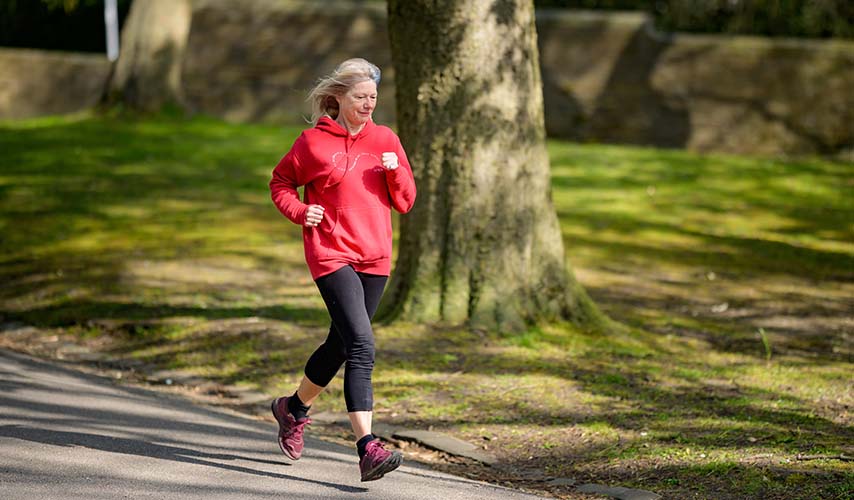
While especially relevant for people at risk of or suffering from osteoporosis, running is a great bone-strengthening activity for anyone looking to keep their bones healthy for longer. In a study comparing various types of exercises, scientists have found that running is significantly more efficient at increasing bone strength than resistance training.14 This concludes that running, which is extremely cost-efficient and doesn’t require excessive time or equipment, is an excellent way to keep your bones healthy.
As for the people concerned about their knees deteriorating over time – you’re in luck too. A 2017 study found that rather than making knees weaker and more prone to injury, running actually improves the flexibility and resistance of your joints.15
And, of course, running improves general mobility – a study found that seniors who run can walk as efficiently as people in their 20s, helping them avoid injury!16
#5 Running increases longevity
Simply put, running can help you live longer.17
It seems obvious on the surface – by running, you’re participating in an activity that directly improves your heart, lungs, and immune system, builds strength and endurance, and makes you feel better mentally.
If you’re taking care of your body, your body will thank you.
Luckily, there’s actually statistical proof linking running to a longer life!
In 2018, a review of various studies found that people who ran at any speed, distance, or frequency had 27% less risk of dying from any cause than their sedentary counterparts! The same review found that people were less likely to die of cardiovascular diseases and cancer (30% and 23%, respectively).18
This is especially relevant to people with cardiovascular diseases and cancer running in their families since running is a well-known prevention method for these diseases. There is also evidence that running may be protective against neurological conditions, such as Alzheimer’s and Parkinson’s, which is also an excellent reason to tie those sneakers and go!19
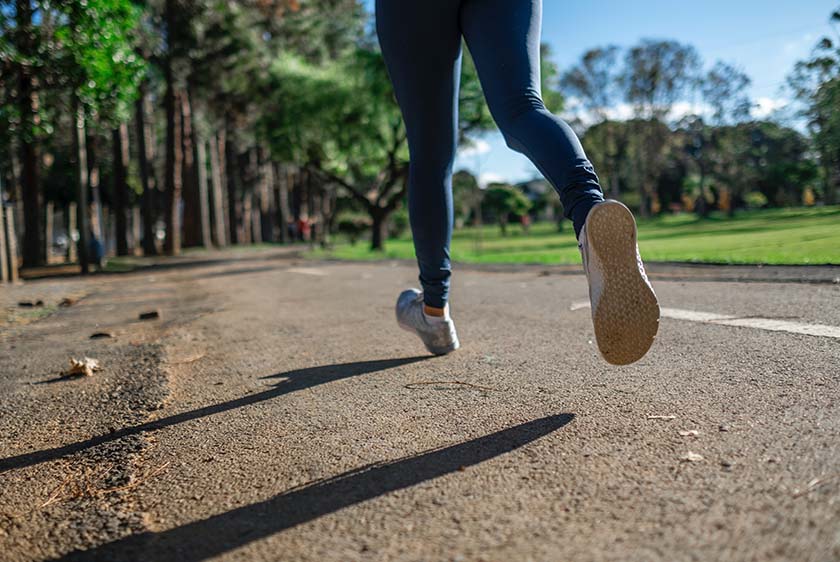
Obviously, it’s not just the little jog protecting you from all those diseases and a shorter lifespan. A huge part of the longevity benefits come from the running lifestyle – maintaining a healthy body weight, not smoking, and consuming light-to-moderate amounts of alcohol. However, as a runner, even if you do indulge in a bit of reckless behavior – you’re in luck since you might outlive your non-runner counterparts.20
Taking into account all the different lifestyles and types of running, on average, runners live around 3 years longer than non-runners.21
Conclusion
Running isn’t just a fad or something young people do for fun. It’s a good way to get into shape and increase the resistance and strength of your body as you age.


- https://www.statista.com/topics/1743/running-and-jogging/#dossierContents__outerWrapper
- https://www.mayoclinic.org/diseases-conditions/high-blood-pressure/symptoms-causes/syc-20373410
- https://link.springer.com/article/10.1007/s40279-019-01209-3
- https://www.webmd.com/fitness-exercise/news/20220302/daily-exercise-cuts-heart-disease-risk-older-people
- https://www.health.harvard.edu/heart-health/what-your-heart-rate-is-telling-you
- https://link.springer.com/article/10.1007/s40279-015-0359-y
- https://www.webmd.com/healthy-aging/what-happens-to-your-heart-as-you-age
- https://www.researchgate.net/publication/344384785_The_Positive_Effects_of_Running_on_Mental_Health
- https://www.sciencedirect.com/science/article/abs/pii/0022399989900202
- https://www.ncbi.nlm.nih.gov/pmc/articles/PMC3872007
- https://www.karger.com/Article/Abstract/223730
- https://journals.plos.org/plosone/article/file?id=10.1371/journal.pone.0181167&type=printable
- https://core.ac.uk/download/pdf/301376022.pdf
- https://www.sciencedaily.com/releases/2009/02/090227080005.htm
- https://pubmed.ncbi.nlm.nih.gov/27699484
- https://www.sciencedaily.com/releases/2014/11/141120141436.htm
- https://www.sciencedirect.com/science/article/abs/pii/S0033062017300488
- https://vuir.vu.edu.au/40291/1/Pedisic_etal%282020%29-Is_running_associated_with_alower_risk.pdf
- https://dr.lib.iastate.edu/server/api/core/bitstreams/4877a5be-9ac4-4822-9623-e00098fd79c5/content
- https://dr.lib.iastate.edu/server/api/core/bitstreams/4877a5be-9ac4-4822-9623-e00098fd79c5/content
- https://pubmed.ncbi.nlm.nih.gov/28365296
Comments (3)
Leave a comment
Thank you for your comment


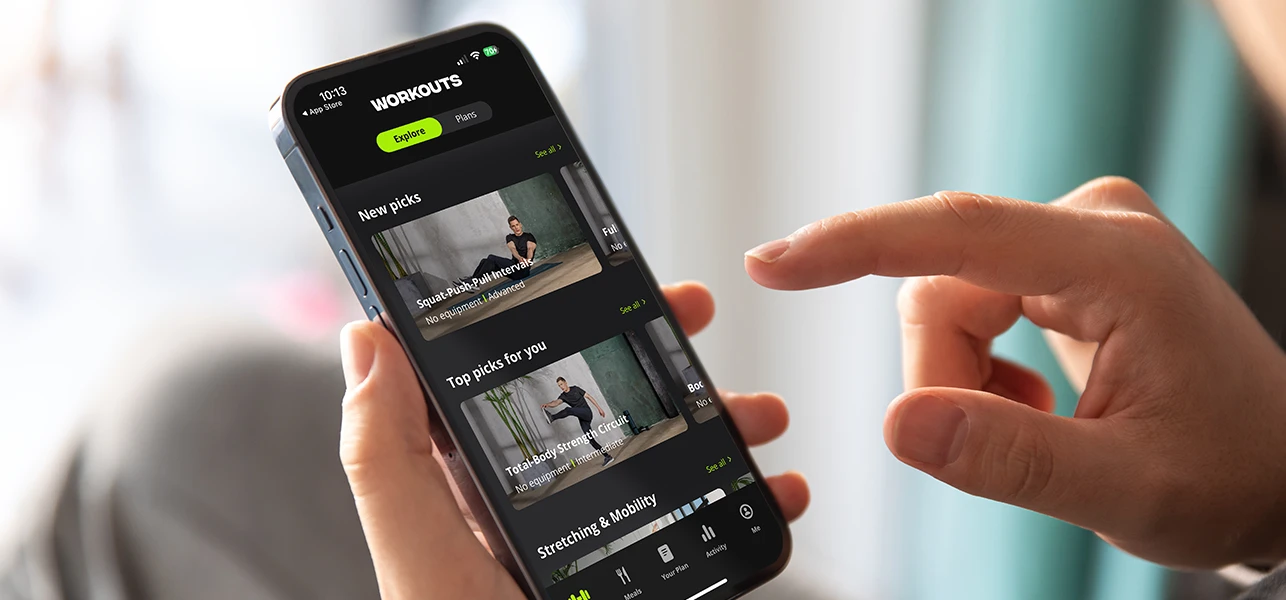

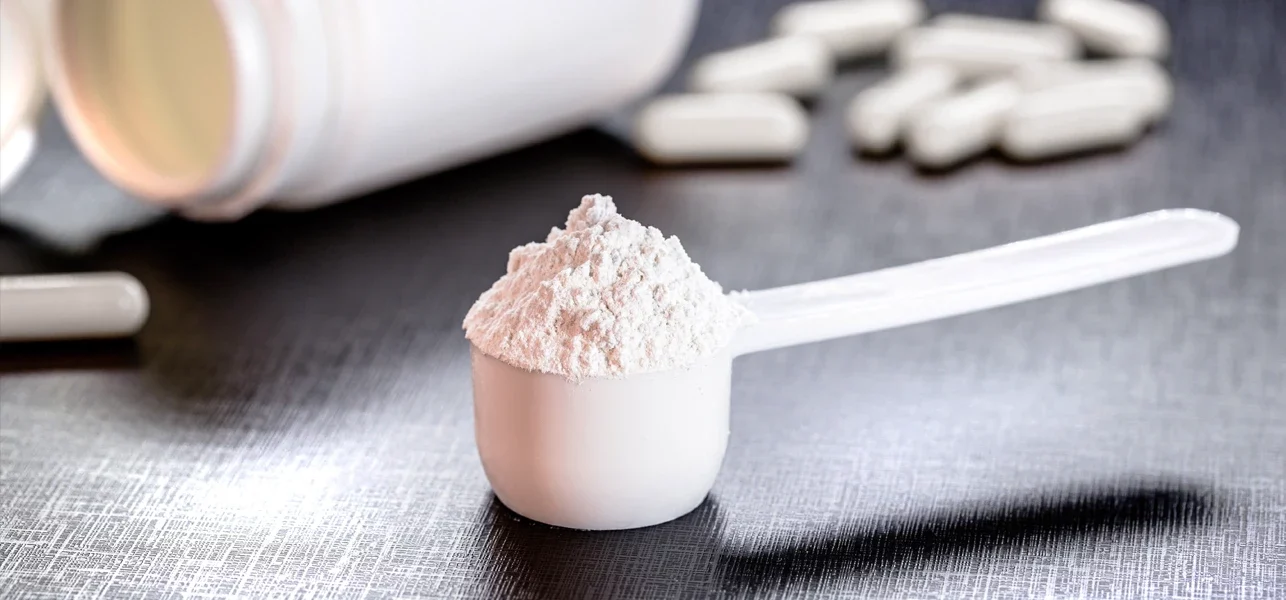
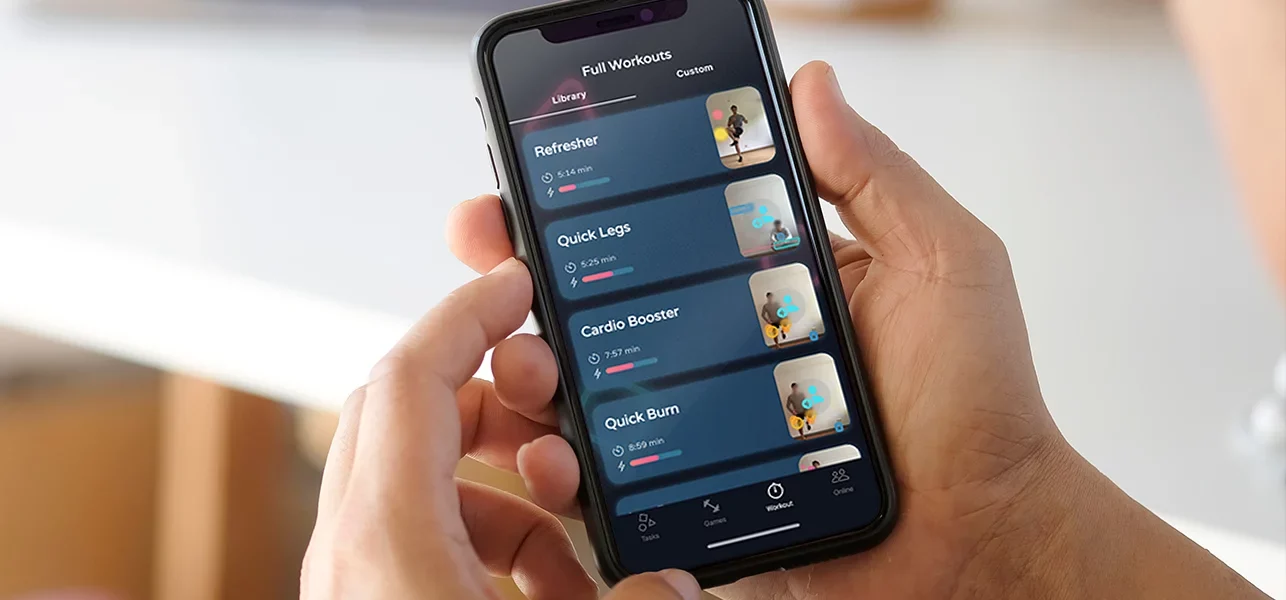
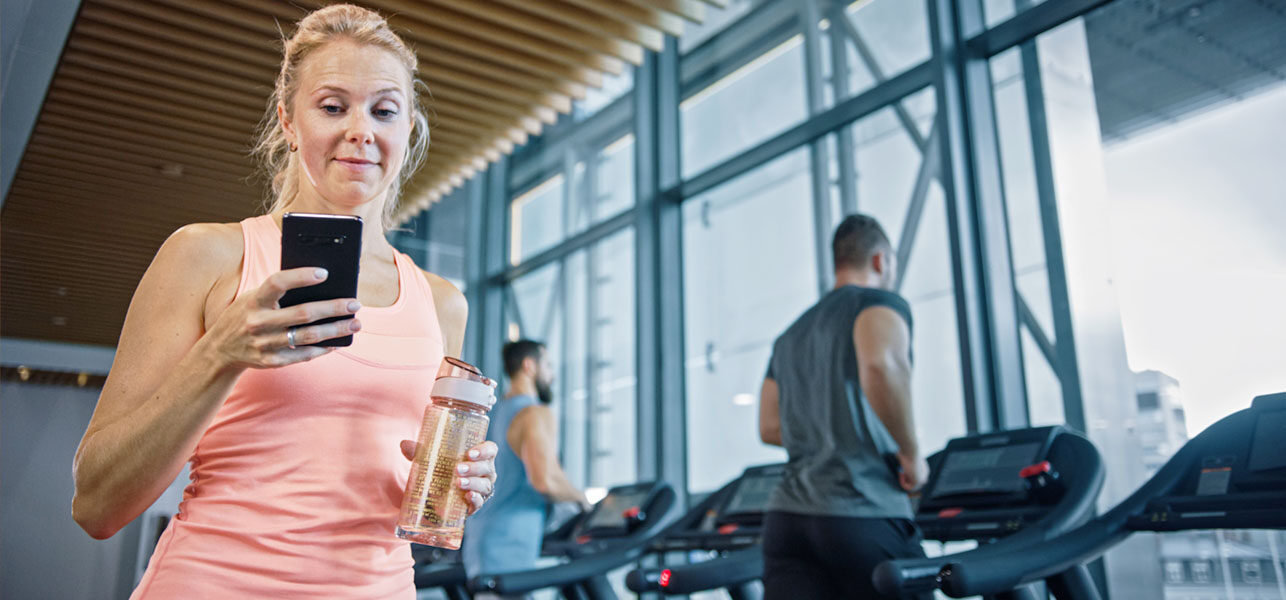
I quit running years ago because I was sure it would mess up my knees. I’m so glad I found this – I’ve missed running so much! Can’t wait to get back at it again.
I’ve always found running so difficult – there’s so much conflicting advice about it online. I think I’m gonna give this Joggo things a go.
oooooooh I’ve always felt like all the C25K stuff was ridiculous, of course I would like a running plan that was made specifically for me! Sign me up!